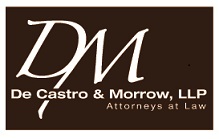California legislators did it again! They passed a myriad of new laws that impact employers. Here is a list of some of the most critical laws that go into effect in 2017:
Minimum Wage Increases
Minimum wage increased on January 1, 2017 to $10.50 for employers with 26 or more employees. This minimum wage increase also impacts the minimum monthly salary test for “exempt” employees. For employers with 26 or more employees, any employee working 2 hours per week in the City of Los Angeles must be paid $12.00 per hour starting July 1, 2017.
Paid Sick Leave
As many of you know, every employer must provide its employees with 24 hours of paid sick leave. For employers with 26 or more employees, any employee working 2 hours per week in the City of Los Angeles must receive 48 hours of paid sick leave. On July 1, 2017, the 48 hour rule will apply to all employers of any size who have employees working in the City of Los Angeles.
Federal Overtime Rule
As we reported previously, the new overtime rule that was to go into effect on December 1, 2016 requiring a higher salary for exempt employees is now on hold after an injunction was issued in Texas. The matter is now being appealed by the Department of Labor. For now, please be sure you are complying with all state and local overtime rules.
Marijuana in the Workplace
Recreational marijuana use is now legal in California. But employers may still maintain policies that prevent the use and possession of marijuana at work. Employers can also test for marijuana use under appropriate circumstances.
Smoke-Free Workplace
Smoking is no longer allowed in warehouse facilities, bars, hotel lobbies and designated break rooms. In addition, e-cigarettes and “vape” devices are now considered “smoking” if the device contains nicotine. Thus, the ban applies to those devices as well. Finally, the minimum smoking age was raised from 18 to 21.
Fair Pay Act
Last year, a law was enacted that prohibited employers from paying employees of the opposite sex different wages for doing similar work. A new law now prohibits paying an employee a different wage than the wages paid to employees of another race or ethnicity.
Bathrooms
Any single occupancy bathroom in any business, public or government location must be identified as “all-gender”.
New I-9
Employers must use a new I-9 form beginning January 22, 2017. And employers are forbidden from asking for additional documents other than those indicated in the I-9 form.
Criminal History
Employers may not ask potential employees about arrests or detentions that were sealed or dismissed, or did not result in a conviction. In Los Angeles, if you have more than 10 employees, you cannot ask about criminal history unless a conditional offer of employment is offered. A detailed process for job posts is required if you wish to consider this information when hiring.
Notices to Employees
Employers must now provide employees with written information regarding their rights if they are victims of domestic violence, sex assault or stalking. A form will be developed by the Labor Commissioner on or before July 1, 2017.
Employers that are required to notify employees of their eligibility for the federal Earned Income Tax Credit must also notify them that they may be eligible for the California Earned Income Tax Credit.
Choice of Law Clauses
If an employee works and lives primarily in California, the employer is prohibited from requiring the employee to sign an agreement that requires them to litigate their claims in a different state.
Latest News
- 20 Jan 2023New Employment Laws – 2023
- 21 Feb 2022Covid 19 UPDATE for 2022 and Supplemental Paid Sick Leave Extended
- 09 Feb 2022New Employment Laws – 2022
- 18 Dec 2020Cal-OSHA issues COVID-19 rules for all employers
- 18 May 2020COVID-19 Return to Work Guidelines

